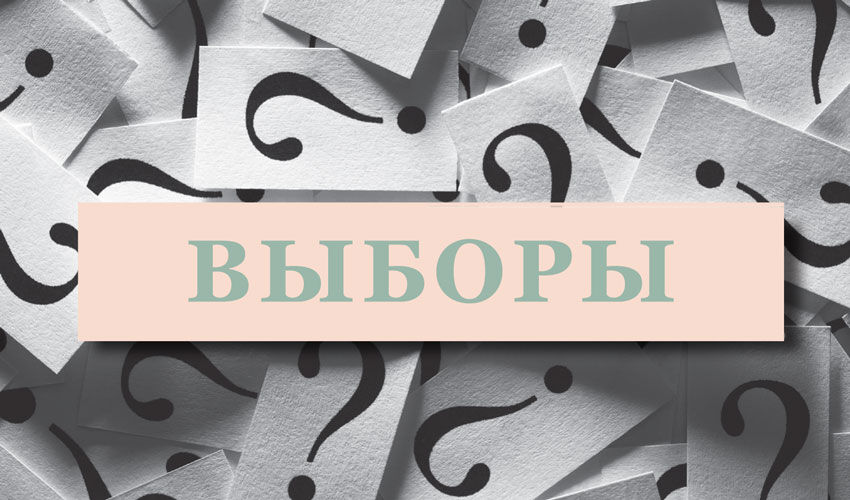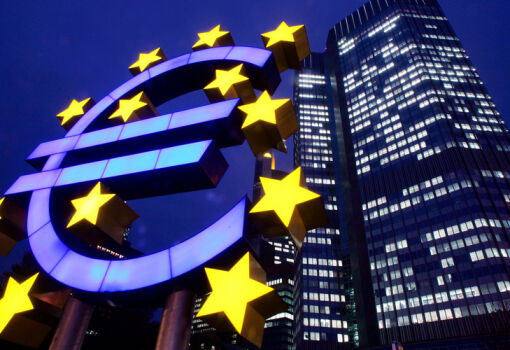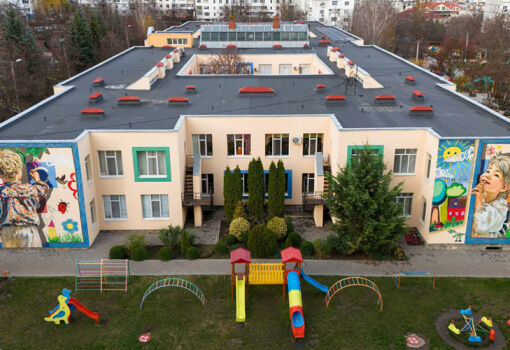
Government spokesman Daniel Wode explained that as part of the campaign, “we will talk simply and frankly about how the state works and how each reform affects everyday life.” Former CEC secretary Alexandru Berlinski called it “a camouflaged election campaign in favor of one competitor.” Sociologist Ian Lesniewski also considers it “a hidden electoral maneuver”.
Victor Nicolaescu, co-founder and managing partner of PARSEC, called for voting for Maia Sandu in the second round of the presidential election, which, however, is not prohibited by law.
Almost simultaneously with this campaign, the ruling PAS party launched another one – Impreuna avem grija de viitorul Moldovei! (“Together we care about Moldova’s future!”). Banners with this slogan on the yellow “corporate” background of the party created a feeling of premature start of the election campaign. Of course, any party has the right to information campaigns – especially since PAS can afford it. The 2024 state budget allocated 51.8 million lei to support political parties, half of which (50%) went to the ruling party. This amount is calculated on the basis of the number of voters who supported it in the previous elections.
It is not difficult to notice that in both cases we are talking about practically the same messages addressed to the voters and the same persons conducting these two campaigns. Therefore, the question remains open: where is the boundary between messages of public interest and direct political, pre-election promotion?
When in the public space the Ministry of Labor and Social Protection, for example, declares that “Moldovan villages and towns have received the most funding for development over the last 4 years”, alluding to the period after the parliamentary elections of 2021, it is certain that at meetings with voters they are not shy in their wording at all. When the official page of the PAS organization in Chisinau says that “in recent years, the Government, with the support of the PAS party, has made large-scale investments in the modernization of hospitals”, this also looks immodest, to put it mildly, towards the taxpayers. When incumbent ministers hand out party newspapers, albeit in their free time, it looks like a fusion of the state machine with the interests of one political force.
The Promo-LEX Association found that state institutions used administrative resources and public means to gain political capital. “After the election date was set, the Parliament amended the state budget, reallocating funds for various projects, and the Government launched the information campaign “Moldova Poate”, which was picked up and promoted by the PAS party. These projects can easily be perceived as electoral promises,” the association’s report says.
To be fair, Ion Ceban’s MAN movement was also accused of using administrative resources.
It should be recognized that PAS is very clearly oriented in the CEC calendar, which was approved on June 18 – almost simultaneously with the two campaigns. Given that the commission is under the control of this party (out of nine members, eight are appointed by the parliament in proportion to the number of factions, one by the president), this does not look like a particularly difficult task. Hence, most likely, the synchronization of all processes.
At the same time, nothing prevented other political forces from planning the necessary steps in advance. While the four left-wing parties (PCRM, PSRM, Inima Moldovei, Viitorul Moldovei) were only announcing their intention to create a unified bloc to participate in the elections, PAS was already registered as a participant in the electoral campaign with a full list. It took the first position on the ballot and now informally sets the tone of the whole campaign. At least at this stage.
In terms of resources in the diaspora – in terms of the number of observers, carpooling opportunities, volunteer coordination and communication with voters, and other organizational capabilities – it is difficult to compete with PAS by definition. Especially now.
The MFAEI has presented a preliminary list of almost 300 polling stations abroad. Most of them are proposed to be opened in Italy – 73, in Germany – 36, in France – 26, in Great Britain and Romania – 23 each, in the USA – 22. Coincidentally or not, in mid-July, Maia Sandu held a series of meetings with the diaspora in Italy – in Florence, Modena, Vicenza, Treviso and Venice. A meeting is scheduled for July 24 in Northampton, where Igor Grosu visited earlier. By the way, Ion Kiku, one of the leaders of the Alternative Bloc, has recently been active in Great Britain.
In the Russian Federation, as well as in the presidential elections, it is planned to open two polling stations – both on the territory of the Moldovan embassy in Moscow. The same number of polling stations will be opened in Ukraine: in Kiev and Odessa. The final decision on the organization of polling stations abroad will be made by the Central Election Commission by August 24. But it is unlikely that this list will undergo serious changes.
The submission of documents for the registration of candidates will last until August 19.
The election is almost two months away, and much remains to be done. However, it will be extremely difficult for any participant to reverse the strategy of the ruling party with its strong resource base. It will require a powerful and truly unexpected move that could surprise.
Ultimately, it will be up to the voters to decide. According to the CEC, 25 parties have already received the right to participate in the parliamentary elections, with 14 more in the verification stage. The ballot paper can accommodate up to 35 positions. If there are more candidates, including independents, it will have to be printed in a book format for the convenience of voters.






